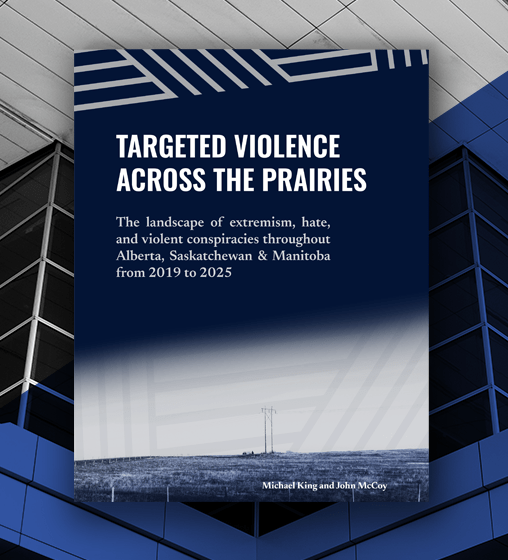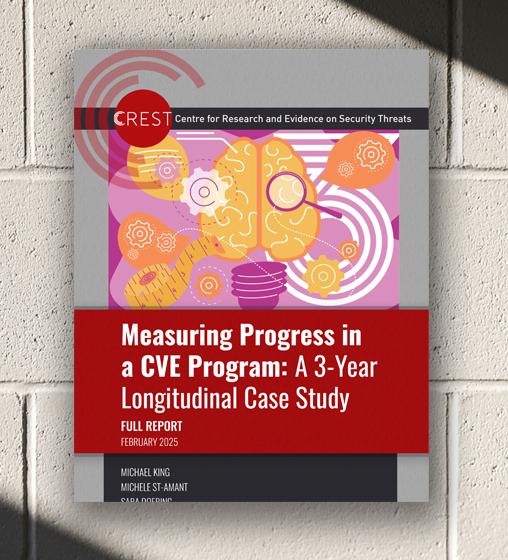Our Director of Research, Michael King, explains the challenges awaiting the children who are repatriated from Syria, and the families who will be hosting them in this article from the Toronto Star.
Original Article
Published by Allan Woods in the Toronto Star on April 5, 2023
Alexandra Bain’s telephone pinged with the one-word text message.
“Cake,” it read.
Bain knew the meaning of the code word, sent from a Syrian prison camp via the secret telephone of a 38-year-old mother of three.
It signalled that a number of the Canadian women and children detained for years in Syrian prison camps meant for suspected members of the Islamic State terror group were now on their way home.
“We had this word and she typed it this afternoon,” Bain, executive director of the advocacy group Families Against Violent Extremism (FAVE), told the Star late Tuesday night. “She chose it. I guess she’s hungry.”
Bain was elated and exhausted. She was also enraged — the fuel that has driven her and others advocating for the return of the detainees whom politicians and broad swaths of the Canadian public would seemingly rather have nothing to do with.
The Islamic State, or ISIS, is a designated terrorist group formed in the chaos of the Syrian civil war. The brutal and media-savvy organization drew tens of thousands of young Muslims to its ranks with the declaration of an Islamic caliphate headquartered in Raqqa, Syria.
At its most powerful, it controlled vast swaths of territory in Syria and Iraq, but its fighting capabilities were degraded and its members were killed, captured or detained after a U.S.-led coalition’s military operation in 2016.
The fate of those captured and suspected of having supported or fought with ISIS has been left to the Kurdish-run Autonomous Administration of North and East Syria, which runs the sprawling detention camps south of the Turkish border.
Conditions in the camps are abhorrent. There is rampant violence, food shortages, disease and little access to education or medical care.
Lawyers and advocates have been fighting for years in the courts to force the federal government to bring detained Canadian citizens home, rather than leave them in a sort of limbo — jailed but not charged, with no means of escape from what remains a conflict zone.
Lawrence Greenspon, a high-profile Ottawa lawyer representing many of the detainees, confirmed Wednesday he had learned the flight home was imminent or underway, though it was not clear exactly how many people would be returning on it, and the federal government refused to comment.
“We have been in contact with at least one of the BOLOH women, and they indicated that they are on the move,” Greenspon said, using the acronym — Bring Our Loved Ones Home — born of the legal challenge he spearheaded.
The activity follows a deal brokered by Greenspon and government lawyers to repatriate six women and 13 children who were involved in a Federal Court case. The government is appealing a ruling that it has a legal obligation to also repatriate four Canadian men.
“She’s going to be so excited,” Bain said of the woman who sent cryptic word that the long trip back to Canada had finally begun.
The woman had been told once before, in 2018, that she was being repatriated, Bain said. She had even gone so far as to give away the precious belongings that she had amassed in the camp, thinking she would no longer need them, only to have the offer of return rescinded at the last minute — a crushing disappointment.
Bain’s organization FAVE later helped the woman’s mother reach the camps to visit her daughter and grandchildren in captivity.
“Her family is going to be so excited,” Bain said.
Others face the crushing disappointment of being left behind.
Among them is a mother who was told by Global Affairs officials that Canada was willing to board her six children on the plane, but not her, because they had yet to complete her security assessment.
As rumours of the imminent Canadian repatriation flight spread throughout the Roj camp in northeast Syria on Tuesday night, Greenspon said he was contacted by a government official and asked to obtain the woman’s consent to send her children to Canada, uncertain when or if she would ever see them again.
As Tuesday night turned to Wednesday morning, Greenspon delivered the outraged response: “She wants her six children to be repatriated and … she wants to come home to Quebec with them.”
He did not get a government response to the proposition and Global Affairs did not respond to a Star request for comment.
“It’s preposterous,” Greenspon said Wednesday. “It’s a preposterous reason to separate a mother from her six children. She’s a Canadian. She’s a Canadian mother.”
There are also four women who do not hold Canadian citizenship but have a combined 10 children who do, through their fathers. The government also offered to take back the kids, but not their primary caregivers.
“Our kids are in tears, heartbroken,” one of the women, identified as Zahra, said in a statement issued by Homes not Bombs, an Ontario advocacy group. “It’s like Canada has told them their lives are not worth saving unless they give up their mothers.”
Asiya Hirji, a lawyer for two of the non-Canadian mothers and their six children, said that federal government officials did not respond to inquiries from one of her clients about repatriating the woman’s child, who has severe autism and requires medical treatment.
“Global Affairs Canada was supposed to get back to me,” she told the Star. “They didn’t.”
The repatriation follows a strict protocol set by the Kurdish administration, which governs the territory immediately south of Syria’s border with Turkey. Canadian officials meet with Kurdish representatives in a signing and handover ceremony, during which this country formally takes custody of the detainees before flying them out of the region.
Last October, when two Canadian women and two children were repatriated, Greenspon got word of the impending repatriation just a few hours before the flight was due to land in Montreal.
One woman, Oumaima Chouay, was arrested and charged with terrorism offences upon arrival, while the other, Kimberly Polman, was served with a peace bond in a British Columbia court that placed legal restrictions on her movements and activities.
Michael King, a psychologist with the Alberta-based Organization for the Prevention of Violence, said family members of the women and children now returning will be gearing up to welcome them, even while preparing for the possibility that the fate of the women once they get here is unknown.
“The extended family who has agreed to receive these people need to scenario-plan,” King said. “Are they receiving an extra adult and children in their household? Are they receiving only children, (whose) only source of security in these prison camps with atrocious conditions … has been their mother, and now their mother is taken away?”
He said there will have been little or no psychological preparation in the camps for the returning children, who will face a drastic change of environment and a potential separation from their mothers.
“The justice system has to do what they do, but from a psychosocial service provider’s perspective — and from the children’s perspective — we would prefer to see these mothers kept with their kids for the time being,” King said.
“The idea is to really focus on the kids. The kids are coming back. They didn’t ask to go over there. They didn’t ask to be born there. They shouldn’t be paying for the sins of their parents.”
Allan Woods. “A text message. A code word. And finally, Canadians detained in Syrian prison camps start their controversial journey home” Toronto Star, 5 April 2023



